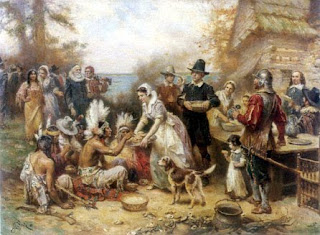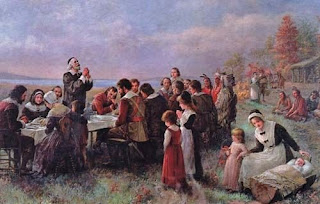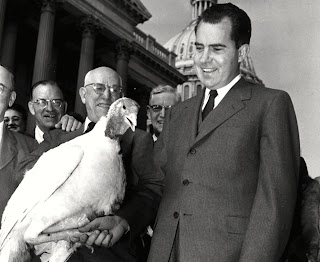Susan Sarandon: ‘I thought Hillary was very dangerous.
If she'd won, we'd be at war’
Once the bete noire of the right,
now the actor finds herself even more hated by the left for refusing to support
Hillary Clinton against Donald Trump. She talks about Hollywood sexism, female
empowerment and playing Bette Davis
by Emma Brockes
Susan
Sarandon at 71 is bright-eyed and airy, and perhaps shyer than she can publicly
seem. When I walk into the room – a private members’ club in downtown New York,
where she sits with a small dog at her feet – she doesn’t say hello or make
eye-contact, giving what I suspect is a false impression of rudeness. It may
also be that she is uncertain of her reception. For a long time Sarandon was
despised by the right, her protests against the Vietnam war and US aggression
in Nicaragua and Iraq making her the kind of target that, for progressives, is
an affirmation of sorts. Her latest unpopularity, by contrast, comes
exclusively from the left and is much tougher on Sarandon. “I’m not attacked
from the right at all,” she will tell me. Instead, she is accused of not checking her white privilege, of throwing away her vote on a third-party candidate (the
Green party nominee, Jill Stein) during the US presidential election, and of
recklessly espousing a political cause that let Trump in through the backdoor.
Liberals in the US, it seems, can summon more hatred for Sarandon right now
than they can for Paul Ryan.
Most
infuriating of all, to her critics, is that she won’t admit her error.
Sarandon’s very physiognomy suggests defiance; she looks indignant even at
rest. She also looks a lot like Bette Davis, so much so that Davis herself, in
her dotage, approached Sarandon to play her. That project never happened, but in the new eight-part Ryan Murphy series Feud:
Bette and Joan, about the battle for Hollywood supremacy between Davis and Joan
Crawford, Sarandon gets her chance. The two leads are
terrific: Jessica Lange, by turns monstrous and pathetic as Crawford; Sarandon
steelier, smarter, less obviously vulnerable. She sees a lot of similarities
between herself and Davis. “We’re both east coast,” she says. “I didn’t
consider myself a star; I was a character actor from the very beginning and not
really sold as pretty, which is probably what’s allowed me to survive as long
as I have. I have this broader phase.”
Sarandon as
Bette Davis and Jessica Lange as Joan Crawford in Feud: Bette and Joan.
Photograph: FX
Sarandon
is working well beyond the age at which women in Hollywood’s golden era could
expect to carry on – “besides playing witches and bitches,” she says. The
interesting thing about Feud is that it tells an unavoidably feminist story
about two women who would have abhorred that particular term. A few years
ago, Sarandon herself said: “I think of myself
as a humanist because I think it’s less alienating to people who think of feminism
as being a load of strident bitches.”
“And
then suddenly it became OK to say feminist,” she says now. “That’s been very
recent. There was a period when that wasn’t really happening. So now there’s
been an opportunity to include men as allies. And I have to say, I remember
going to the ERA [Equal Rights Amendment] march where there were 100,000 women
and we were going around talking to senators for this vote and I got on the
elevator, and the women were like: ‘We’re going to show them what the fuck we
want.’ And I kept saying: ‘Calm down, that’s not the way we’re going to get
things done.’”
You
thought it was counterproductive to be that angry? “It was counterproductive,
clearly. But that image of the shrill woman became the definition of a feminist
for a long time. And women had a right to be angry, and to feel empowered. But
that was just one glimpse of a fairly emotional and strident definition, and
there was a period when young women didn’t want that label.”
And
now? “It’s come back, and it’s gotten warped, especially with the election,
where if you’re a woman you have to support Hillary Clinton.”
Now,
of course, no one in Sarandon’s industry would get caught dead having a flaky
opinion on sexism in Hollywood. Still, the actor is cautious. One gets the
feeling that the Harvey Weinstein business simply isn’t very interesting to
Sarandon, that there are other causes – the Keystone pipeline, fracking, oil and
gas money in politics – that she considers more urgent. She is no apologist for
the Weinsteins of this world, but she can, at times, sound positively
libertarian about where the responsibilities of the women involved lie.
Sarandon listens
to Bernie Sanders campaigning in Iowa, Jan 2016. Photograph: Chris Carlson/AP
“There
are a lot of people who did say no,” she says. “I think the big question here
is that if Harvey Weinstein exposed himself to you when you were on a yacht in
Cannes and you told everybody – this is Angie Everhart’s story – and
everyone said: ‘Well, that’s just Harvey’ and it wasn’t a big deal – those are
the people who are perpetuating it, too. Now, I’m sure there’s a lot of men who
were much smoother at seducing than-” she bursts out laughing – “James Toback and Harvey Weinstein,
who a lot of women felt very flattered to be sleeping with, even if they didn’t
get the job. There’s just a culture, starting in the 60s and 70s, where there
was a certain amount of liberation that made it possible for those things to
happen without even seeing yourself as a victim.”
One of
the questions currently being asked is whether what Sarandon describes – the
inability of many women even to conceptualise themselves as victims – is a
function of “liberation” or internalised misogynistic denial. For Sarandon’s
part, nothing post-Weinstein has made her reassess her own past. “Certainly, I
experienced both having people come on to me and being told that I wasn’t
interesting enough to get a part, or sexual enough, once they found out I was
married,” she says. She also admits she was lucky; that, unlike many of the
women coming forward today, Sarandon’s resolve was never put to the test. “In
my case, I just said no, in many clumsy, stupid ways, but the people didn’t
push on. They didn’t show up in my room. They didn’t corner me, or batter me,
or get on top of me. It was an invitation: ‘Yeah, why don’t you spend the night
now that you’re here in the middle of nowhere on location?’ And I said: ‘No, I
gotta get back to my room.’ But I didn’t feel super offended, because it wasn’t
a thing that became super difficult.”
There
were other hard things. “I remember another really famous actress saying to me:
‘Well, don’t have children because that’ll really change the parts that you’ll
be available for. And you won’t work past 40 anyway.’ And a lot of that has
changed. And a lot of women are assessing how they feel; were they victimised
or did they feel that it was their own choice?”
There
is no question, she believes, that there are more choices today and that this
is slowly correcting the imbalance of power. “More and more women are able to
greenlight their own projects. My last few films have had women directors –
they’re not the big blockbusters, but I’m not sure those big blockbusters are
very interesting to direct. But there is definitely more power in the hands of
women than there was – the Reese Witherspoons, who are getting books, putting
together projects, telling women’s stories. I think that’s where the difference
is. The culture itself is ... it’s a tricky thing because you are selling
yourself using sex, and your looks, for the most part. And I think that when
you have these men in positions of power, they assume that [sex] goes along
with it. And until you get women to have an economic power base – I mean, look
at Brit Marling’s article [in the Atlantic],
where she talks about being able to walk out of an uncomfortable situation with
Harvey even though she hated herself for going in the first place, because she
knew she could write and produce and direct. So when people see themselves as
having their own power base, it becomes imaginable that you could turn somebody
down and still survive.”
With Geena Davis
in Thelma And Louise, 1991. Photograph: c.MGM/Everett/REX
It is
often overlooked that in 2001, Sarandon supported Hillary Clinton’s run for the
Senate. There are photos of them posing chummily together, grinning. Then
Clinton voted for the war in Iraq and it all went downhill. During the last
election, Sarandon supported Bernie Sanders, then wouldn’t support Clinton
after she won the nomination, and now all the moderates hate her, to the
extent, she says, that she had to change her phone number because people she
identifies as Hillary trolls sent her threatening messages. “I got from Hillary
people ‘I hope your crotch is grabbed’, ‘I hope you’re raped’. Misogynistic attacks.
Recently, I said ‘I stand with Dreamers’ [children brought illegally to the US,
whose path to legal citizenship – an Obama-era provision – Trump has threatened
to revoke] and that started another wave.”
Wait,
from the right?
“No,
from the left! ‘How dare you! You who are responsible for this!’”
I ask
if she’s aware that Katha Pollitt recently called her an idiot in the New
York Review of Books and she looks momentarily taken aback.
“I’m flattered,” she says. These people are furious with you, I say.
“Well,
that’s why we’re going to lose again if we depend on the DNC [the Democratic
National Committee]. Because the amount of denial ... I mean it’s very
flattering to think that I, on my own, cost the election. That my little voice
was the deciding factor.”
Is it
upsetting to be attacked?
“It’s
upsetting to me more from the point of view of thinking they haven’t learned. I
don’t need to be vindicated.”
But
it’s upsetting that they’re still feeding the same misinformation to people.
When Obama got the nomination, 25% of [Hillary’s] people didn’t vote for him.
Only 12% of Bernie’s people didn’t vote for her.”
But
she didn’t advocate voting for Hillary! Come on.
“Hmm?”
Didn’t
she advocate voting for Jill Stein?
“I
didn’t advocate people voting for anything. I said get your information, I’m
going to vote for change, because I was hoping that Stein was going to get
whatever percentage she needed – but I knew she wasn’t going to make the
difference in the election.”
Sarandon with
Cher and Michelle Pfeiffer in The Witches of Eastwick, 1987. Photograph:
Allstar/Cinetext/WARNER BROS
Does
she have any sympathy with the critique that casting a protest vote is the
luxury of those insulated from the effects of a Trump presidency? “It wasn’t a
protest vote. Following Bernie wasn’t a protest.” Voting for Jill Stein was, by
any definition, a protest vote. “Well, I knew that New York was going to go
[for Hillary]. It was probably the easiest place to vote for Stein. Bringing attention
to working-class issues is not a luxury. People are really hurting; that’s how
this guy got in. What we should be discussing is not the election, but how we
got to the point where Trump was the answer.” (We should also, she says,
inching towards the space where the extreme right meets the left, be discussing
how “you can’t judge by the mainstream media what’s going on in the country.
How did we lose all our journalists and media?”)
Has
she lost friends over all this? “No. My friends have a right to their opinions.
It’s disappointing but that’s their business. It’s like in the lead-up to
Vietnam, and then later they say: ‘You were right.’ Or strangely, some of my
gay friends were like: ‘Oh, I just feel bad for [Clinton]. And I said: ‘She’s
not authentic. She’s been terrible to gay people for the longest time. She’s an
opportunist.’ And then I’m like: ‘OK, let’s not talk about it any more.’”
Still,
I think while there was vast political error on both sides, the inability of
Sarandon and her ilk to embrace the lesser of two evils permitted the greater
of the two evils to rise. And yet I like Sarandon. It takes real courage to go
against the mob. Her inconsistencies are a little wild, but in the age of
social-media enforced conformity, I have never met anyone so uninterested in
toeing the line.
Did
she really say that Hillary was more dangerous than Trump?
“Not
exactly, but I don’t mind that quote,” she says. “I did think she was very,
very dangerous. We would still be fracking, we would be at war [if she was
president]. It wouldn’t be much smoother. Look what happened under Obama that
we didn’t notice.”
It
seems absurd to argue that healthcare, childcare, taxation for the non-rich
wouldn’t be better now under President Clinton, and that’s before we get to the
threat of deportation hanging over millions of immigrants. “She would’ve done
it the way Obama did it,” says Sarandon, “which was sneakily. He deported more
people than have been deported now. How he got the Nobel peace prize I don’t
know. I think it was very important to have a black family in the White House
and I think some of the stuff he did was good. He tried really hard about
healthcare. But he didn’t go all the way because of big pharma.”
It’s
tempting to read some of Sarandon’s fervour as a reaction against her own
family’s Republicanism – during the Bush years, her now 94-year old-mother was
interviewed by Bill O’Reilly, and encouraged to speculate on where she went
wrong with her daughter. (Sarandon’s mother would probably have voted for
Trump, she says, but “I don’t think she got out to vote.” She smiles. “We
didn’t facilitate that.”)
All of
which makes the actor’s position on feminism more puzzling. Sarandon is close
to her three children – Eva Amurri, whom she had with the Italian film-maker Franco
Amurri, and Miles and Jack, her two sons with her former partner of 23 years,
Tim Robbins, with whom she is reportedly on good terms. It was her daughter,
Eva, who as a teenager didn’t like the word feminism, says Sarandon, because
“it seemed redundant to have to say you were a feminist”.
But it
wasn’t.
“No,
but she grew up in a house where she had a mother who earned her own money and
was powerful and she’s in a progressive city, with other progressive kids – she
wasn’t even exposed to the more Republican part of Manhattan. So she was in a
progressive bubble. I think the secret is maybe now we have to just say no one
is going to fix it for you. It’s up to you to fix it. You have the strength.
You shouldn’t turn to be validated by anyone, male or female. You carry your
power within you, and if you surround yourself with people who respect you,
that will happen, be they male or female.” It is a strange statement from
someone who believes that structural inequality requires political solutions.
Earlier, she makes the point that Clinton’s refusal to back the $15 minimum
wage, “tells you she’s not a feminist, when 50% of the households in America
are headed by women.” Clinton espoused a $12 minimum wage, with scope to raise
it to $15 in metropolitan centres, but that’s not the point. The point is
self-validation doesn’t pay the rent.)
After
the interview, we leave the club and walk towards the subway. “What was her
name?” she says. “In the magazine?”
“Katha
Pollitt,” I say. We part at the corner of Seventh Avenue and Sarandon
disappears up the street, dog under one arm, hat pulled low, assistant at her
elbow. “Will I get a load more hatred when this article comes out?” she shouts,
looking back over her shoulder.
“Probably,”
I say. I have a hunch she can take it.
Feud: Bette and Joan starts on BBC Two on Saturday 16 December
at 9pm. The full series will be available on BBC iPlayer from 10.45pm that
evening.
- This article was amended on 27
November 2017. Jill Stein was the Green party presidential nominee, not an
independent.
Since you’re here …
… we have a small favour to ask. More people are reading the
Guardian than ever but advertising revenues across the media are falling fast.
And unlike many news organisations, we haven’t put up a paywall – we want to
keep our journalism as open as we can. So you can see why we need to ask for
your help. The Guardian’s independent, investigative journalism takes a lot of
time, money and hard work to produce. But we do it because we believe our
perspective matters – because it might well be your perspective, too.
I appreciate there not
being a paywall: it is more democratic for the media to be available for all
and not a commodity to be purchased by a few. I’m happy to make a contribution
so others with less means still have access to information.Thomasine F-R.
If everyone who reads our reporting, who likes it, helps fund
it, our future would be much more secure. For
as little as $1, you can support the Guardian – and it only takes a minute.
Thank you.











































